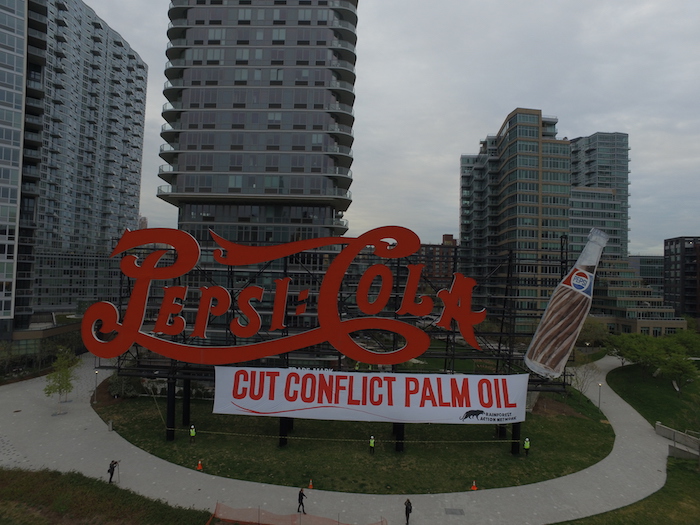PepsiCo’s palm oil problems far from addressed, says Rainforest Action Network (RAN)
FOR IMMEDIATE RELEASE
CONTACT: Emma Rae Lierley, +1.425.281.1989, Emma@ran.org
San Francisco, CA – Today, snack food giant PepsiCo issued its Palm Oil Action Plan Progress Report in an effort to address criticisms of its palm oil supply chain. PepsiCo’s progress report comes on the heels of two separate, independent reports in the past year that have linked PepsiCo to exploitation and labor abuses in its palm oil supply chain. PepsiCo, the largest globally distributed snack food company, is a major purchaser of palm oil, using 470,045 metric tons of palm oil in 2014 alone.
Gemma Tillack, Agribusiness Campaign Director for Rainforest Action Network, said:
“In this Progress Report, PepsiCo has confirmed what we’ve known for a long time. Many of its products are made using palm oil from unknown origins and are at risk of being produced at the expense of rainforests, our climate and the rights and wellbeing of communities and workers.”
“PepsiCo has once again failed to set a deadline for breaking the links between its products and companies that are destroying rainforests and peatlands, and abusing human and labor rights. Instead, its progress report reconfirms plans to only source physically certified palm oil by 2020––a deadline out of step with what is needed,” Tillack said.
PepsiCo’s Progress Report includes a new commitment to intervene on suppliers found to be violating its policy in Indonesia which is the frontline of palm oil expansion and human and labor rights violations in palm oil production. This undertaking may be a sign that PepsiCo’s leadership realizes the need to respond to the recent labor reports and the growing movement calling for an end to its use of Conflict Palm Oil.
“After years of inaction, PepsiCo has finally committed to identify problematic suppliers that continue to destroy rainforest and peatlands and abuse rights in Indonesia. It is critical that PepsiCo requires its Indonesian business partner Indofood to publicly acknowledge the labor violations found on its plantations and publish comprehensive policies and action plans to address deforestation, expansion on peatlands, and the violations of human or workers rights in its global operations.”
It is clear that PepsiCo must scale up its efforts to ensure that deforestation and human and labor rights will no longer taint the snack food giant’s supply chain. Consumers around the world will not settle for half measures,” concluded Tillack.
###
